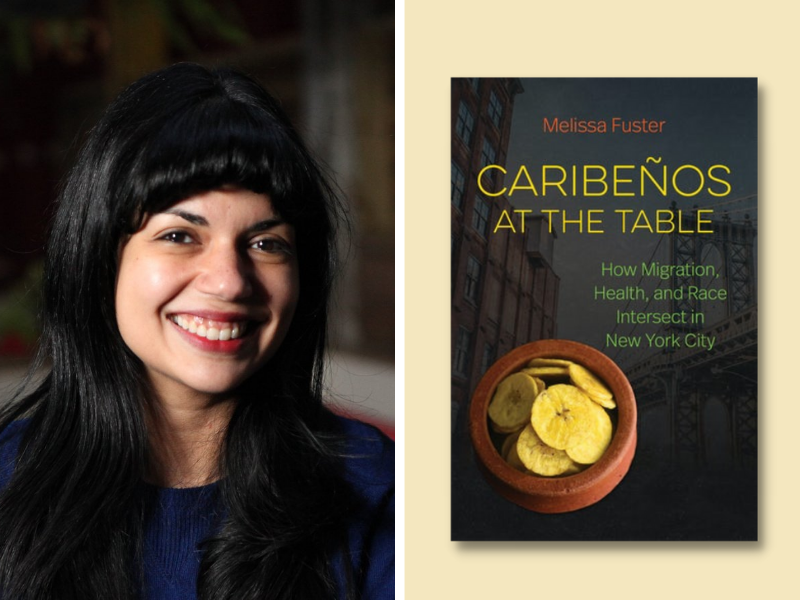Tulane Nutrition Professor writes book about how migration, health, and race intersect in New York City

Dr. Melissa Fuster has written a book entitled “Caribeños at the Table: How Migration, Health, and Race Intersect in New York City,” from the University of North Carolina Press. The book addresses issues pertinent to public health and nutrition, focusing on Hispanic Caribbean communities in New York City. Fuster is a new associate professor of public health nutrition at the Tulane School of Public Health and Tropical Medicine. Before joining the faculty at Tulane, she was an Assistant Professor at the City University of New York Brooklyn College.
Born and raised in Puerto Rico, Fuster completed her BA in Sociology and Anthropology at Florida International University and a doctoral degree in Food Policy and Applied Nutrition at Tufts University. After researching healthy eating among poor Salvadoran communities for her doctoral dissertation, Fuster was awarded a postdoctoral fellowship in Food Studies at New York University. This facilitated the work that later became Caribeños at the Table.
“Coming to New York City allowed me to engage in research that directly related to my Puerto Rican community. Puerto Ricans, more often than not, show high rates of obesity and related chronic conditions. I really wanted to understand why this was the case, beyond usual explanations that focused on individual factors. So I brought the other fellow caribeños, Dominicans and Cubans, into my research to be better able to examine food practices within contexts that shared a common history, resulting in similar cuisines, yet differed strikingly in political and economic situations, resulting in different communities and outcomes.”
In her book, Fuster thinks expansively about the multiple meanings of comida, food, from something as simple as a meal to something as complex as one’s identity. She listens intently to the voices of New York City residents with Cuban, Dominican, or Puerto Rican backgrounds, as well as to those of the nutritionists and health professionals who serve them.
In the book, Fuster shows how nutritionists and eaters often misrepresent and even racialize a cuisine’s healthfulness by overlooking the economic and racial hardships migrants experience.
Finally, she argues that this community’s health depends not only on food culture but also on critical structural factors that underlie their access, or lack thereof, to food, employment, and high-quality healthcare.
The work is especially relevant as we continue to see the harmful effect of COVID-19 among communities of color. People in Hispanic Caribbean communities in the United States present high rates of obesity, diabetes, and other diet-related diseases. These conditions place individuals at the greatest risk of dying from this disease. Fuster hopes that the work presented in Caribeños at the Table will result in new ways of addressing these underlying conditions by shifting the focus from individual behavior change to socioecological approaches that promote improved food environments and livelihoods among communities of color.
Dr. Fuster’s research examines the contextual factors influencing food practices and the policies and interventions implemented to improve them. This work applies a multidisciplinary approach to exploring underlying social determinants of diet-related health inequities, focusing on Latin American and diaspora communities.
Building on this work and Caribeños at the Table, Dr. Fuster is currently tackling food access issues via the Latin American Restaurants in Action (LARiA) Project, supported by a National Heart, Lung, and Blood Institute Career Development Award.
The LARiA Project applies systems science, design thinking, and implementation sciences to engage Latin restaurants in designing and implementing innovations to facilitate healthier eating. Additionally, she also participates in research examining nutrition expert perceptions and practice and food policy implementation.
The paperback version of Fuster’s book comes out this October and can be found here. In addition, there will be a book presentation scheduled at Books and Books, a Miami-based bookstore on November 1st with Florida International University, and a presentation as part of the Pépin Lecture Series at Boston University on November 12th. She will also be doing a book tour in the Spring. Follow our social media to learn the dates of her tour.
